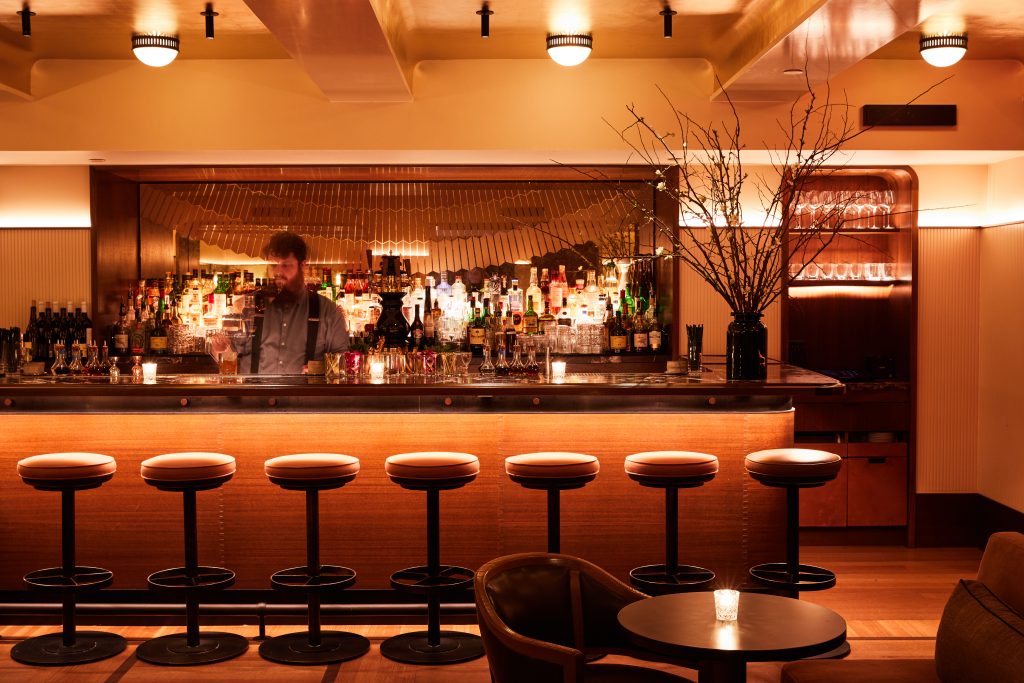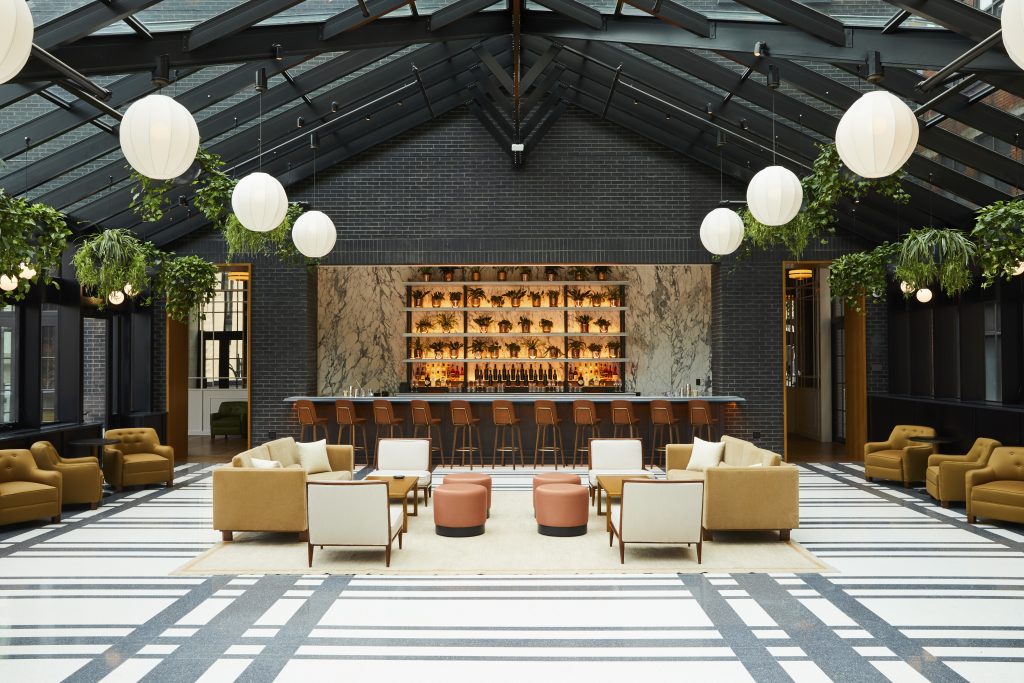Detroit’s New Shinola Hotel
Accommodation, shopping, drinking and dining at the Detroit-based brand’s new space

The vibrant terra cotta façade of the new Shinola Hotel rises up from Woodward Avenue in the center of downtown Detroit. It’s part of an ambitious redevelopment plan that is revitalizing once-grand buildings, in hopes of attracting new businesses and residents—and to show the world, once again, that the Motor City is back.

Enter Shinola, the lifestyle brand launched in 2011 and known for its watches, bicycles, and leather goods. And now, added to that list is a hip luxury hotel, in partnership with commercial real estate firm Bedrock and designed by Gachot Studios—who imagined the design narrative and executed every important detail. Spanning five historic buildings, the property includes the main structure (built in 1915 that originally housed Rayl’s sporting goods and hardware store) as well as the limestone neoclassical Singer Building, which was once home to the sewing machines of the same name.
“We tried to keep as much of the original feeling as we could,” Shinola’s Director of Community Relations Tom Forrest tells us. Traces of old signage can still be seen on the brick, and the wood railing of an original staircase has been restored to its former glory. Even the wallpaper was copied from an original print found in the building. That said, countless new elements and contemporary amenities were added—including 17 fireplaces.

Each of the Shinola’s 129 rooms is decorated with furniture, art and accessories primarily manufactured in the US. From the 275-foot Study Queen to the sweeping 1100-square-foot penthouse, every room features hardwood floors, Italian cotton sheets, bathroom products from Rayl’s, and (unsurprisingly) a Shinola alarm clock. The minibar is stocked with full-sized bottles of spirits, as well as the bottled-in-Detroit Shinola Cola.
In our Gallery room (complete with Shinola Runwell turntable and vintage record selection), the end to a perfect evening included soaking in the large bathtub while chewing on an Abba-Zabba as Marvin Gaye crooned from the living area.

The hotel’s common spaces have already become gathering places for locals, and include the Evening Bar, where bartenders sling cocktails in the wood-paneled, softly lit space. The upstairs mezzanine is a low-lit nook with cozy sofas and chairs, stocked with board games and other curiosities.

San Morello is the hotel’s main restaurant, where Italian-inspired dishes abound, such as eggs al forno with mozzarella and focaccia, and the Southern Italian Benedict, which swaps Canadian bacon and English muffins for pepperoni and Sicilian-style bread.

Two new spaces have opened since our visit. Penny Red’s is a fried chicken joint that serves up pieces of poultry smothered in honey, as well as classic sides like potato salad and biscuits. The Brakeman—as in the Shinola watch, named for the railroad worker—offers those same buckets of chicken in a high-ceilinged beer hall outfitted with ping-pong and foosball tables, whose lights are modeled after those on a train.
It goes without saying that a Shinola hotel would have an accompanying retail store, and this one doesn’t disappoint. A full array of Shinola’s products are sold beneath a high-barreled ceiling, the walls decked with tall shelves filled with objects d’art—including a slick model plane that is, alas, not for sale. Here you can purchase any of Shinola’s models, assembled not far away, including a special “Hotel” edition.
Shinola’s efforts, however, are not without controversy. Although the brand originally claimed to be “made in Detroit,” the FTC ruled a few years ago that the company must disclose that its timepieces used “Swiss and other imported parts.” To add fuel to the fire, the Washington Post and other media sites have in the past accused the company of using Detroit’s comeback narrative as a type of marketing gimmick, asserting that the luxury goods maker contributes to gentrification that can exacerbate the racial divide. In response, the company has pointed to its mission of bringing back well-paying American jobs. The company currently employs about 600 people and around 200 of those who work in manufacturing.

No matter the side of the fence you’re on, Shinola is changing Detroit—and will continue to do so for the next few years to come. Outside the hotel, an alleyway is slowly being populated with more restaurants, bars, and shops. A future development next door (which at the time of our visit was a gargantuan hole in the ground) will be connected via a walkway, which will encourage more foot traffic and transform this one-time struggling section of downtown into a bustling hub—hopefully encouraging locals and visitors to spend a little more time.












